|
Changing lives for good through Empowered Worldview, one life at a time
By Daniel Muvengi, Director, Faith & Development, World Vision East Africa Region
“Because of having gone through empowered worldview training, I can now produce 30 bags of rice per acre instead of 10 bags per acre on my 3 acres of land. All my children are in school (one in college doing medicine, and others in high school). I am now able to support three orphans in my village, and I am educating many other farmers. My husband also has an empowered worldview and is now okay with me going out to work as he can see the direct benefits.” — Mary, Empowered Worldview community facilitator in Makindube, Tanzania.
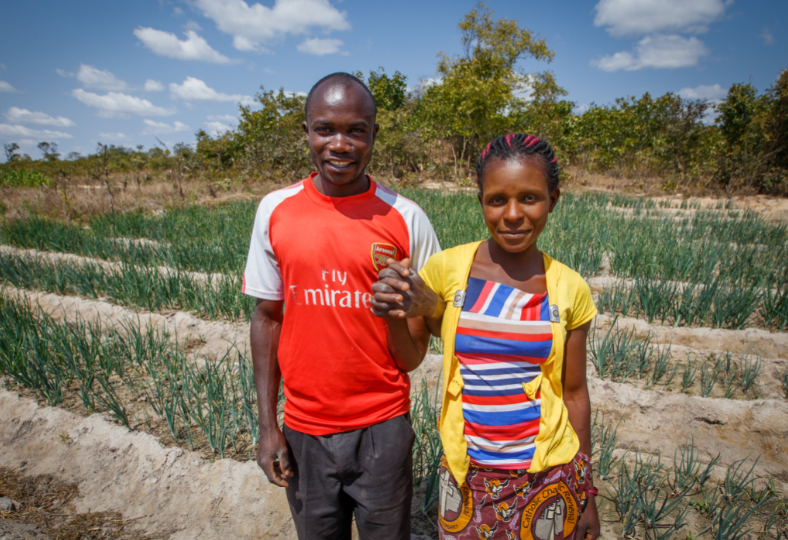 Mary is one of more than 100,000 beneficiaries who have been reached through Empowered Worldview (EWV) training in more than 24 countries. Stories like hers, telling of increased crop yield, access to education, income growth, and gender equity, are common wherever EWV training is conducted. Mary is one of more than 100,000 beneficiaries who have been reached through Empowered Worldview (EWV) training in more than 24 countries. Stories like hers, telling of increased crop yield, access to education, income growth, and gender equity, are common wherever EWV training is conducted.
Worldview is a term that encompasses the intersection of cultural, social, personal, spiritual/religious, biophysical and bodily systems. Often, people in poverty are trapped in a cycle of systems and beliefs that dis-empowers them. Interventions that fail to address worldview result in little or no lasting change. Empowered Worldview training helps individuals, households, and communities achieve sustainable development outcomes through faith-based principles. The EWV curriculum starts with Identity—what does it mean to be made in the image of God? Participants learn to replace fearful and superstitious beliefs with knowledge that they have dignity, agency, and the capacity to transform their lives, families, and communities. The next module covers Vision—what does it mean for individuals, families, and communities to live in harmony? Participants are encouraged to enjoy the benefits of their labors without being greedy, exploiting, or oppressing others, and are also encouraged to advocate for policies that uphold the rights of community members. Next, participants address Compassion—what are practical and sustainable ways to care for the most vulnerable people in their communities, including women and children. Relationships is the next module—how can participants develop and improve loving family relationships, as well as trusting relationships with people in their communities that have different beliefs and backgrounds. Finally, EWV addresses Faith—what does it mean to live a life of faith in the context of community?
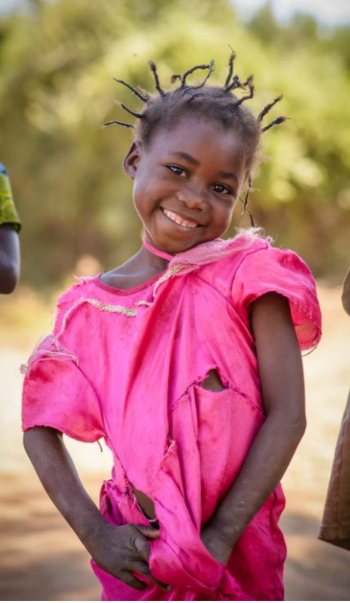 Through these five modules, Empowered Worldview training reshapes the paradigms by which poverty and development is understood and addressed. And because training is implemented alongside community and faith leaders, both individuals and communities are empowered to break mindsets of dependencies and achieve holistic change, especially for the most vulnerable. Often, the journey of transformation includes people discovering the resources they already have, finding solutions, and acting together for the first time, taking responsibility for their own development. Through these five modules, Empowered Worldview training reshapes the paradigms by which poverty and development is understood and addressed. And because training is implemented alongside community and faith leaders, both individuals and communities are empowered to break mindsets of dependencies and achieve holistic change, especially for the most vulnerable. Often, the journey of transformation includes people discovering the resources they already have, finding solutions, and acting together for the first time, taking responsibility for their own development.
Mary already had 3 acres of land when she participated in EWV training, she just needed training on best practices for her farming. And she and her husband needed to come to a new understanding of what agency and equality meant in a relationship. Now, as a result of what she learned, she is also part of a savings group that is helping her and others expand their businesses. And they are using their profits to care for 11 orphans in the community and promoting child protection and monitoring maternal clinics.
Looking to the future in Fiscal year 20, we are excited to adapt EWV for children and youth and also to support new countries which have yet to adopt Empowered Worldview training in their approach to transformational development.
|
|
Celebrating World Soil Day
By John McCormack, Sr. Technical Advisor, World Vision US
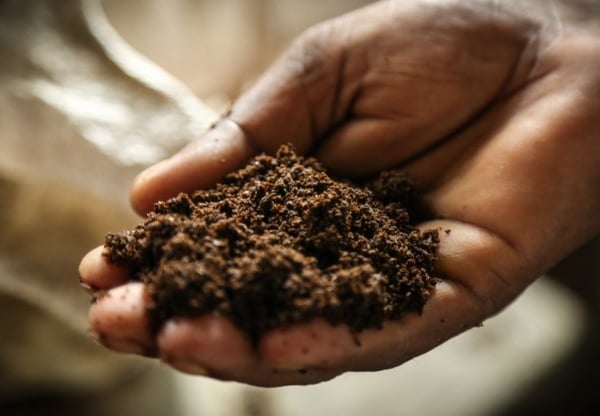 On December 5, 2019 we celebrated World Soil Day. For 500 million smallholder farmers around the world, sustainable soil and natural resource management (NRM) is crucial in providing food and nutrition. These farmers rely heavily on agriculture for their livelihoods, including crops, livestock, forestry and fishery, and face challenges from the rapid loss of biodiversity caused by climate change and human population growth. NRM can help overcome these challenges and achieve the Sustainable Development Goals (SDGs) by 2030. On December 5, 2019 we celebrated World Soil Day. For 500 million smallholder farmers around the world, sustainable soil and natural resource management (NRM) is crucial in providing food and nutrition. These farmers rely heavily on agriculture for their livelihoods, including crops, livestock, forestry and fishery, and face challenges from the rapid loss of biodiversity caused by climate change and human population growth. NRM can help overcome these challenges and achieve the Sustainable Development Goals (SDGs) by 2030.
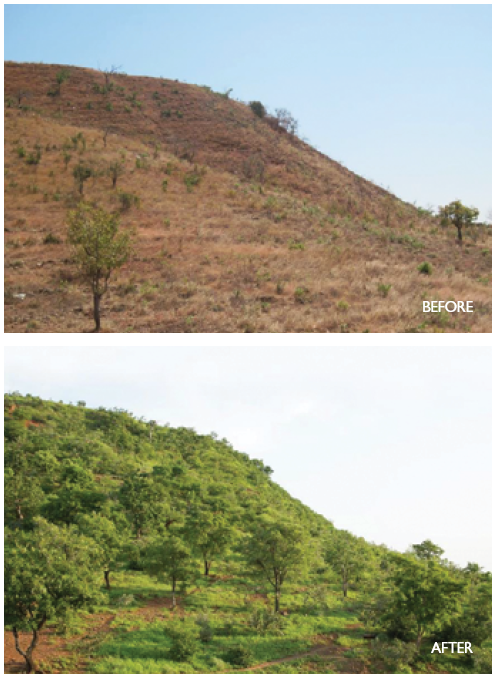 “Farms of less than 1 hectare account for 70% of all farms but operate only 7 percent of all agricultural land. Smallholders play an essential role in ensuring food security and nutrition. Smallholders can also contribute to a vast range of different benefits such as creating employment in rural areas, reducing poverty and enhancing the sustainable management of natural resources. They are themselves often affected by food insecurity and malnutrition as around 80% of the world’s poor and food insecure live in rural areas and most of the rural poor are small-scale family food producers [1]” – Committee on World Food Security. “Farms of less than 1 hectare account for 70% of all farms but operate only 7 percent of all agricultural land. Smallholders play an essential role in ensuring food security and nutrition. Smallholders can also contribute to a vast range of different benefits such as creating employment in rural areas, reducing poverty and enhancing the sustainable management of natural resources. They are themselves often affected by food insecurity and malnutrition as around 80% of the world’s poor and food insecure live in rural areas and most of the rural poor are small-scale family food producers [1]” – Committee on World Food Security.
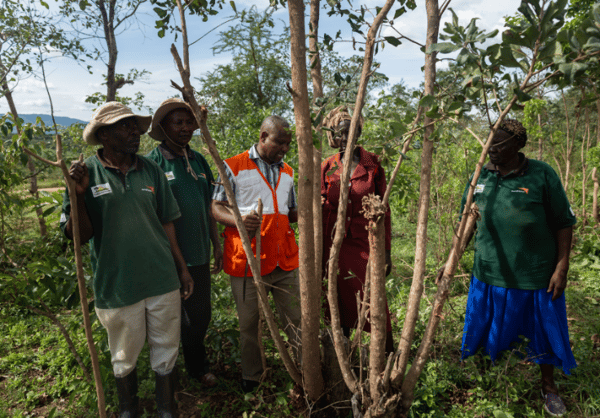
World Vision’s signature approach to natural resource management is an award winning intervention called Farmer Managed Natural Regeneration (FMNR). FMNR uses solutions like bench terracing, water harvesting technology, and dams to address watershed issues, and teaches smallholder farmers best practices in conservation agriculture, sustainable land management, and climate-smart agriculture to mitigate soil degradation and loss.
This proven method is backed by funding from individuals, foundations, and even the US government through the Food for Peace program, and has shown dramatic results throughout East, Southern, and West Africa.[2]
|